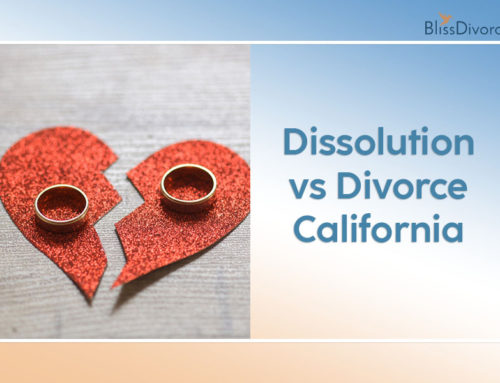The decision to divorce is often complicated and can be even more complex when mental health illnesses are involved. Navigating a divorce in California when mental health illnesses are involved is challenging, but it is possible to reach a successful outcome. It’s essential to understand the state’s laws and how mental health illnesses can affect the divorce process so that you can make the best decisions for your family. Below is an overview of what you need to know about navigating mental health illnesses in California during a divorce, including how to get the help you need and how to protect yourself and your family.

Source: shutterstock.com / Photo Contributor: Dragana Gordic
Overview of California divorce law and mental health
California has a no-fault divorce law that allows either spouse to end a marriage without having to prove that the other spouse did something wrong. If one spouse meets specific requirements, like living in the state for one year and being at least 18 years old, that person can file for divorce. The two spouses do not have to agree on why the divorce is happening, and mental health issues are not considered in the decision to end a marriage. California’s divorce laws focus on protecting children’s health and well-being. If a spouse has a mental health illness, the court will consider that illness when making decisions about child custody and visitation.
The role of mental health in California divorce proceedings
When you are going through a divorce in California, your mental health does not have to be a barrier to reaching an agreement with your spouse. During the divorce, you and your spouse will have to disclose any mental health conditions you have been diagnosed with, as well as any medication you are taking to treat those illnesses. You should expect your spouse to be honest about their mental health issues, but you also have the right to ask for a mental health evaluation if you have questions or concerns about your spouse’s mental condition.
A physician, clinical psychologist, or licensed marriage and family therapist can conduct a mental health evaluation. These professionals will help you understand your spouse’s mental illnesses’ effects on their ability to parent, work, and manage finances. The evaluation results and information about your mental illnesses will help you and your spouse reach a fair settlement and help the court make reasonable decisions about child custody, visitation, and your spousal support payment.
Effects of mental health on child custody and visitation
If one spouse has a mental illness, the court will consider that illness when deciding what custody and visitation arrangements are best for the children. Under California law, the court will grant custody to the parent more likely to promote the children’s emotional health and well-being unless the other parent is unfit. In all cases, the court’s goal is to protect the children from emotional harm, including stress or extreme emotions associated with the divorce.
While no specific laws say a parent must disclose a mental illness to receive custody of the children, it is important to be upfront about your mental health. In some cases, the court may order the parent with a mental illness to receive supervised visitation or monitoring from a third party.

Source: shutterstock.com / Photo Contributor: fizkes
How to deal with mental health in mediation
Mediation is an informal process that happens outside of a courtroom and is often used to resolve divorce issues without going to trial. Because mental health issues are considered in a divorce, you should share all relevant information with your mediator. For example, if you are taking medication for depression, you should let the mediator know. If your spouse is not disclosing their mental illnesses, consider bringing in a mental health professional to support your claims. Mediation is voluntary, so you can end the mediation process anytime.
How to ensure a fair settlement when mental health is involved
The court does not consider mental health when determining spousal support, but it deems mental illnesses when determining child support payments. In California, the court bases spousal support payments on the income of both spouses, the length of the marriage, and any disabilities one spouse may have. When one spouse has a mental illness, the court may order that spouse to provide more information about their income and expenses so that both spouses have a fair settlement.
How to seek help and support during a divorce
Whether you are initiating the divorce or the spouse is being asked to end the marriage, you may experience feelings of isolation. It is common for people going through a divorce to experience feelings of sadness, frustration, and even depression. It is important to seek help and support when you need it, whether from a therapist, support group, or someone you can talk to.
One of the best things you can do when going through a divorce is to ensure you take care of yourself. This includes eating well, exercising, getting enough sleep, and doing things you enjoy. It is also essential to make time for self-care practices like meditation or journaling if they are helpful to you. It can also be beneficial to reach out to family members or friends who will listen without judgment and help you process what you are going through. These relationships can become invaluable support systems during a stressful time in your life.
With divorce comes many confusing legalities and the potential for emotional distress. And in California, where mental health illnesses are involved, these difficulties can be even more pronounced. Yet, with a proper understanding of state laws regarding such matters and how mental health issues may impact the procedure’s proceedings. This infographic is the best guide for those in California dealing with mental health concerns amid a divorce. Learn how to get help, protect yourself and your family, and other guidance on navigating this difficult time.

Video
*This article is for informational purposes only and is not intended to provide legal advice. If you require legal advice, please contact a licensed attorney in your local area.




